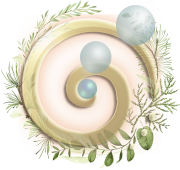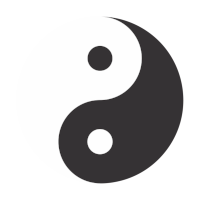
Taoism
The word Tao means path or way, although the original meaning in Chinese philosophy and religion is more abstract. Behind all material things and all the change in the world lies one fundamental, universal principle which is the Way or Tao.
This principle governs everything, all change and all life. Behind the multiplicity and contradictions of the world lies a unity: the Tao. The Power of the Way is Te. The purpose of human life is to live life according to the Tao.
"Beyond the gate of experience flows the Way,
Which is ever greater and more subtle than the world."
From the Tao Te Ching
The Tao Te Ching written by Lao Tzu. It is not thematically ordered, but the leading themes are about the nature of Tao and how to attain it. The opening lines are:
"The Way that can be experienced is not true;
The world that can be constructed is not real."
Zhuangzi, written by the same named sage is a book of prose, poetry, humor and disputation.
The Daozang or Treasury of Tao is considered as the Taoist canon. It is divided into three gongs or caves: The Zhen (Truth), The Xuan (Mystery) and The Shen (Divine revelation).

Neidan, or spiritual alchemy is a series of physical, mental, and spiritual disciplines that help in prolonging the life of the body and create an immortal spiritual body that would survive after death. In Neidan, Three Treasures of Jing, Chi, and Shen are cultivated in the human body for improving physical, emotional and mental health, making it immortal and merging with the Tao;
TCM or Traditional Chinese Medicine, including herbal treatments, acupuncture, dietary therapy, Tui na and Shiatsu massage, many styles of Qigong breath training and Taijiquan;
Feng shui is the knowledge that reveals how to balance the energies of any given space to assure the health and good fortune for people inhabiting it;
Sacrificing food to the spirits of the deceased or gods at certain dates;
Burning Joss paper, made from coarse bamboo paper, also known as "ghost money" burned for the purpose of ensuring that spirit of the deceased has lots of good things in the afterlife;
Vegan diet (excludes the use of animals for food, clothing, or any other purpose);
Street parades on particular holidays with firecrackers, traditional music, lion and dragon dances, "spirit medium", human-occupied puppets;
Some martial arts traditions such as T'ai Chi Ch'uan, Wing Chun, to name a few;
Fortune telling includes primary The Book of Changes, I Ching, one of the oldest of the Chinese classic texts that contains a divination system widely used for this purpose along with Chinese Astrology.
"The Tao that can be told of is not the eternal Tao;
The name that can be named is not the eternal name.
The Nameless is the origin of Heaven and Earth;
The Named is the mother of all things.
Therefore, let there always be non-being, so we may see their subtlety,
And let there always be being, so we may see their outcome.
The two are the same,
But after they are produced, they have different names.
They both may be called deep and profound.
Deeper and more profound,
The door of all subtleties!"
Lao Tzu